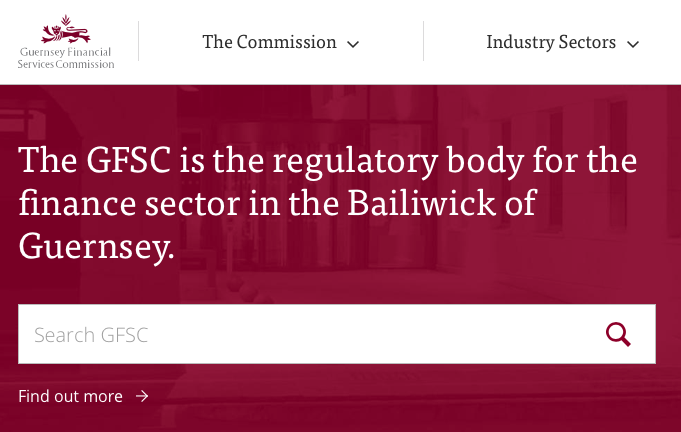

The GFSC has had its sanctioning powers fully restored – allowing it to once again ban people from working in the industry for fixed amounts of time.
This comes after the body's powers were reduced by Guernsey's Royal Court, as it was found to have misinterpreted the law, and could only either prohibit someone for life, or not at all.
But that decision has now been overturned by the Court of Appeal, which decided the GFSC had been operating correctly all along.
The GFSC is Guernsey's Financial Services Regulator.
Responsible for regulating the large majority of Guernsey’s Finance Industry, the Guernsey Financial Services Commission’s enforcement division has the power to intervene in a business or with an individual it believes to be doing wrong.
This enforcement normally starts after GFSC inspectors are asked to investigate something reported to them, or if they come across something they deem to be wrong doing.
When enforcing cases, the GFSC can issue ‘sanctions’ including fines, bans on people from working in the industry, or from holding directorships, and publish public statements airing exactly what happened.
Earlier this year, an appeal was brought before Guernsey's Royal Court, which saw those powers called in to question.

Mr Y's appeal was first heard in front of the Deputy Bailiff.
Mr Y was appealing a decision from the GFSC to prohibit him from acting as a Director, to remove him from a number of directorships he held, to fine him £13,000 and to issue a public statement outlining exactly what had happened.
This was all after Mr Y, who was a director of Licensee Company X, begun to incorporate companies for clients through an accountancy firm he also owned, and not through Company X. He was not regulated or registered to do this.
Following his sanctions, Mr Y made the appeal which was heard by the Deputy Bailiff. Sir Richard McMahon found the GFSC did not have the power or jurisdiction to make prohibition orders that are limited in time – for example, banning a person from being a trust director for five years.
Rather, he said the GFSC would have to prohibit people from working indefinitely, but then invite them to reapply after a certain number of years.
This was a landmark decision by the Deputy Bailiff, as it would have changed the face of how the GFSC can sanction directors for breaking the rules they are expected to follow while working in the finance industry.

Pictured top: The GFSC's HQ on Glategny Esplanade.
It was also a surprising decision, as it would mean the GFSC would only be able to act in the extremes: with a prohibition or no prohibition.
Because of the potential implications, the GFSC decided to appeal the result of Mr Y’s appeal.
This second appeal was heard by James McNeill QC, George Bompas QC and Sir Wyn Williams, and was eventually accepted, restoring the GFSC’s powers to issue set-term sanctions.
The judgement said: “In the result, we allow the GFSC’s appeal, and will order the reinstatement of the Prohibition Order and the Exemption Order made by the SDM and with the period of four years to run from the time when the orders were made by the SDM; and we dismiss Y’s cross-appeals.”
In a public statement on its successful appeal, the GFSC said: “The Commission always believed that its policy offered a more reasonable and proportionate approach to the imposition of enforcement sanctions. In each case, the Commission only sought to prohibit people for the minimum period that it thought necessary in all the circumstances.
“The Commission was therefore very concerned by the decision of the Royal Court, and decided to lodge an appeal with the Guernsey Court of Appeal, which handed down its Judgment yesterday afternoon.”

The GFSC's website first reported the result.
It explained that in enforcement cases, it would often seek to impose prohibitions on individuals to prevent them from continuing to work in the industry, but felt lifetime bans should be reserved for circumstances that warranted such an approach.
“In essence, the Court of Appeal struck down the finding of the Royal Court that time-limiting prohibitions and disapplication of the six directorships exemption went beyond the scope of the Commission’s legal powers.
“Instead, the Court of Appeal confirmed that the Commission had correctly interpreted the scope of its legal powers. The Commission can now again tailor prohibitions and disapplication of the six directorships exemption to the individual circumstances of each case, and make orders that are reasonable and proportionate in all the circumstances.
“The Commission will now proceed with the enforcement case involving Y, taking into account the guidance provided by the respective Courts.”
Comments
Comments on this story express the views of the commentator only, not Bailiwick Publishing. We are unable to guarantee the accuracy of any of those comments.